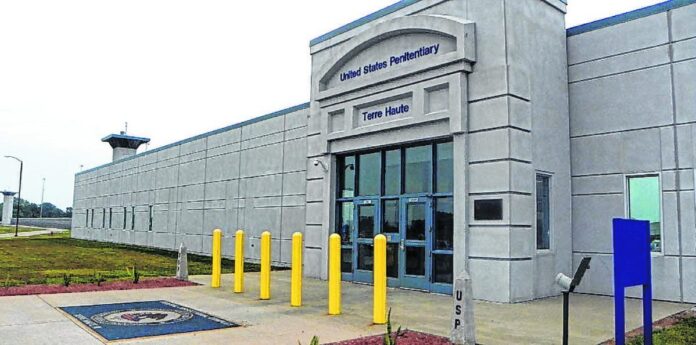The night before federal death row inmate Orlando Hall was executed by lethal injection Nov. 19, he phoned Columbus resident and 15-year friend Donna Keogh.
Hall, imprisoned at the U.S. Penitentiary in Terre Haute, became the eighth person executed by the U.S. government after a 17-year hiatus from federal death penalties that ended in July.
“His emotional state was good,” said Keogh, who began writing him and emailing him a few years ago as a spinoff of a St. Bartholomew Catholic Church program called The Giving Tree, an outreach to death row inmates’ children and grandchildren. “He had made peace with God. That really came across.”
Keogh recently served as a panelist for those supporting death row inmates as part of a national, virtual conference Human Rights In Crisis: The U.S. Federal Execution Spree, organized by Death Penalty Action and the Indiana Abolition Coalition.
[sc:text-divider text-divider-title=”Story continues below gallery” ]
The series of federal executions during President Donald Trump’s lame-duck period is unprecedented in the United States, according to federal criminal justice statistics. And Keogh is hopeful that the administration of President-elect Joe Biden will stop the killings sometime after inauguration day Jan. 20.
Hall was sentenced to death for the 1994 kidnapping, rape, and murder of 16-year-old Lisa Rene — an honor roll student with dreams of becoming a doctor.
Keogh, a member of St. Bartholomew Catholic Church’s peace and justice ministry, last year worked alongside others at St. Bartholomew, plus believers at First Presbyterian Church and North Christian Church, to organize a free event called “Life Matters: A Prayer Response to the Death Penalty.”
St. Bartholomew member Judy Harpenau was also a part of that event. She was grieved to discover this summer that Wesley Purkey, a death row inmate she had corresponded with for 12 years, was executed July 16, among the first when the executions were initially ramped up.
Harpenau is straightforward about her stance on capital punishment.
“Jesus Christ would never execute anybody,” she said, adding that she’s additionally angered that Blacks are executed exponentially more often than whites, according to the Death Penalty Information Center. “He would not throw away people’s lives. These people on death row are not the same people they were years ago (as criminals).”
Her last letter to Purkey, sent about 10 days before his death, was returned to her unopened.
Sarah Grey, a longtime Columbus resident and social justice activist who moved to Madison last year, cannot emphasize enough her disgust for revival of a series of executions.
“It’s just outrageous,” said Grey, who once witnessed an execution in Terre Haute. “I am grieving. It’s unbelievable to me that so many of these executions have happened so quickly and without any regard for anybody, including the execution team.”
She referred to the fact that eight of those team members recently had contracted COVID-19.
Grey, Keogh and Harpenau all mentioned that they acknowledge inmates’ terrible crimes, including grisly murders. But they say that killing the inmates, in turn, is also horrific and does nothing to bring healing or restoration amid the agony.
“Yes, they committed a horrible crime,” Keogh said, adding that most have publicly apologized for their offenses. “But really, they’re just people. We’re all just people. These are sons, fathers, grandfathers, brothers. And they just need people to listen to them and support them where they now are.”





